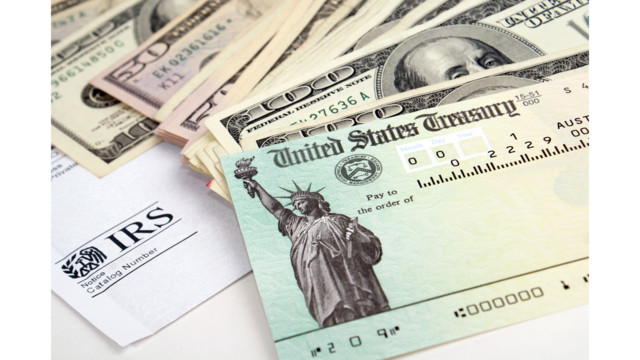Note: We’ve noticed a lot of people visiting this article, which was from the first Coronavirus stimulus payments back in April 2020. For the latest on the likely second coronavirus stimulus payments, in December (or early January 2021), read this article:
https://www.cpapracticeadvisor.com/21203609
Congress may be on the verge of passing a second relief package, which could mean $600 stimulus checks, plus supplemental $300-a-week federal unemployment benefits if you’re not working, and deferred student loan payments until April 2021.
Small business owners could also get another shot at federal loan money.
The congressional package as of Friday totaled roughly $900 billion in relief measures, including $325 billion in small business support, roughly $250 billion in funding to the Paycheck Protection Program; at least a $600 direct payment to individuals; and $300 per week in supplemental federal unemployment insurance benefits for at least an additional 10 weeks.
The same Americans who got stimulus checks last March should be eligible for this latest round — individuals making less than $75,000 and married couples making less than $150,000 in adjusted gross income. As in the first round, folks with dependents may also receive extra money.
Checks should go out a few weeks after any relief bill passes. Federal unemployment would pick up where states left off, as many benefits expire in the coming weeks.
Congress may also include $25 billion in emergency rental assistance, and extend the eviction moratorium through January 2021. The relief package could also extend deferral on federal student loans through the end of April 2021, vs. the end of January as provided by an extension signed by President Trump.
Of course, a relief bill may not materialize. So stay tuned.
Local business leaders and accountants are prepping their networks of clients to gather documentation for another round of Paycheck Protection Program loans.
The U.S. Small Business Administration is expected to open the next PPP application window soon, although it’s unclear when. PPP loans under $150,000 are mostly forgiven, if the right documentation is submitted.
Congress’ first round of PPP loans largely excluded minority- and women-owned companies, and the Enterprise Center wants to arm entrepreneurs with the tools needed to ensure additional small business loans are equitably distributed.
“It is likely that the second round of PPP funding will have two additional requirements: businesses must have 300 or fewer employees, and must provide evidence that their revenue has dropped 30% or more as a result of COVID-19,” said Ian Lawrence, senior director at Philly’s Enterprise Center.
“Because minority-owned businesses have historically struggled to gain access to private capital and federal funding, it’s essential that they’re prepared to apply for the next round of PPP loans. That means having financial statements, payroll documents, and other paperwork in order and completed,” he said. “If Black and brown businesses do not take these steps in the coming days, they may be shut out of government funding again.”
The Enterprise Center has a form online to receive the latest updates and make an appointment for virtual application assistance.
That could be a lifeline for small business owners like Jacqueline Debose, who owns Markhi Kids Children’s Boutique at 5246 Market St.
“It’s been so slow,” she said. “I’m just trying to keep rolling, pay my credit card and other bills.”
“I don’t know what we’re going to do without help,” Debose said. She’d like to apply for PPP money but isn’t sure how to go about it without a tax accountant and other guidance.
Temple University’s Institute for Business and Information Technology is offering free assistance to businesses and nonprofits that need a digital presence. Applications are available here: https://ibit.temple.edu/dt/apply/.
A “fix” in the relief package could come for business owners who get PPP loans: They may be able to deduct the money spent on business expenses on their taxes, said Anselm Sauter, Greater Philadelphia Chamber’s director of federal and state affairs. “That was a big win for our constituents.”
“We’ve heard the intent of Congress is that those would be deductible,” Sauter said. “This bipartisan bill clarifies that. Will that be retroactive for IRS guidance on all PPP loans? We’ll find out soon.”
The Chamber of Commerce for Greater Philadelphia has also been in close contact with Pennsylvania’s congressional representatives and senators, he added.
“They are optimistic that something will pass, we thought on Friday. Now, negotiations could go into the weekend.”
___
(c)2020 The Philadelphia Inquirer
Visit The Philadelphia Inquirer at www.inquirer.com
Distributed by Tribune Content Agency, LLC.
Thanks for reading CPA Practice Advisor!
Subscribe Already registered? Log In
Need more information? Read the FAQs
Tags: Benefits




